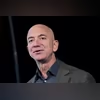Washington Post owner Jeff Bezos has defended his newspaper’s decision to halt presidential endorsements, asserting that this move could strengthen the paper's credibility amid a “perception of bias.”
In an article on the Post’s website, Bezos, also the founder of Amazon, argued that endorsements do not influence election outcomes but may instead affect public trust. “No undecided voters in Pennsylvania are going to say, ‘I’m going with Newspaper A’s endorsement.’ None,” Bezos stated.
“What presidential endorsements actually do is create a perception of bias—a perception of non-independence. Ending them is a principled decision, and it’s the right one,” he added.
The announcement came just days before the election, marking a notable shift from the Post’s decades-long tradition. Since the 1970s, the newspaper has endorsed candidates in most presidential elections. However, Washington Post Chief Executive Officer William Lewis described the change as a return to the paper's original mission, calling it “a return to our roots of not endorsing presidential candidates.”
The decision has prompted reactions both within and outside the newsroom. The Washington Post Guild, representing the newspaper’s employees, voiced “deep concerns,” noting potential effects on readership. “We are already seeing cancellations from once-loyal readers,” the Guild’s leadership said in a statement. “This decision undercuts the work of our members at a time when we should be building our readers’ trust, not losing it,” the Guild added.
Reports suggest that the Post has lost as many as 200,000 digital subscribers, with several editorial board members resigning. The Post declined to comment on the subscriber figures, and Bezos did not address the subscriber loss directly. A report from National Public Radio cited sources claiming some editorial staff had been preparing an endorsement for Vice-President Kamala Harris, although the article was ultimately shelved.
More From This Section
Bezos dismissed speculation around the timing of the decision, which some viewed as intentional. “I wish we had made the change earlier than we did, in a moment further from the election and the emotions around it,” he wrote, attributing the timing to “inadequate planning.”
In response to critics questioning his motives, Bezos emphasised that the move was not “quid pro quo of any kind” with either Harris or her Republican challenger, Donald Trump. Bezos believes this shift away from endorsements will allow the Post to “exercise new muscles” and remain relevant in the evolving media landscape.
Other major publications have also revised their endorsement policies this election season. The Los Angeles Times and USA Today, like the Post, will not endorse a candidate, whereas the New York Times and New York Post have publicly backed Harris and Trump, respectively.
)